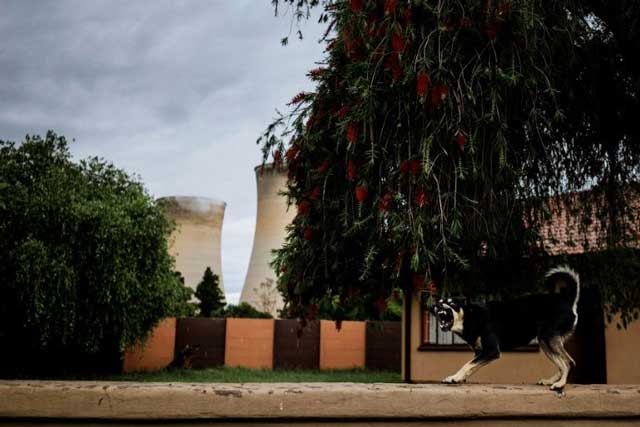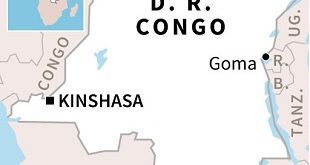
Cape Town, South Africa | AFP | South Africa’s finance minister is expected to walk a tightrope during the annual budget presentation to parliament on Wednesday, as the economy teeters on the edge of a fiscal cliff.
The continent’s most industrialised economy has in recent years lurched from one economic woe to the next.
Weak growth, deteriorating public finances including a swollen budget deficit, crippling power cuts and soaring unemployment still cloud the outlook.
President Cyril Ramaphosa has alluded to the crises, warning during a state of the nation address last week that government debt was “heading towards unsustainable levels”.
The “economy has not grown at any meaningful rate for over a decade”, said Ramaphosa, adding that desperately needed growth was being hampered by persistent power outages imposed by state-owned electricity firm Eskom.
Unemployment is creeping towards 30 percent, the highest level in more than a decade.
All eyes will thus be on Finance Minister Tito Mboweni as he is expected to scale back public spending and find ways to raise revenue.
Faced with a national debt equivalent to around 60 percent of gross domestic product and a budget deficit of around 5.9 percent of GDP, Mboweni has little room to manoeuvre.
“The government continues to find itself unable to flex the political muscle required to implement the sweeping reforms it has been promising,” noted Eurasia Group Africa director Darias Jonker.
Old Mutual Investment Group’s chief economist Johann Els emphasised that the treasury had been “unable to rein in the budget deficits” over the past few years.
“It is really now or never,” he cautioned.
– ‘Slow growth, credit downgrades’ –
Mboweni’s budget will also be under the scrutiny of international ratings agency Moody’s, the only major assessor that still considers South African debt to be investment grade.
Fitch and S&P downgraded its credit rating to junk status in 2017.
“We are on the verge of a Moody’s rating downgrade, and if we don’t stabilise the deficit and get spending under control, they will downgrade us,” Els said.
Losing its last investment grade rating could spark an exodus from South Africa’s bond markets and pile pressure on the rand.
The country’s lacklustre economic performance is largely a result of domestic issues.
Repeated bailouts to state-owned entities over the past decade — most notably to Eskom and flag-carrier South African Airways — have drained state coffers.
“The government desperately needs to move away from consumption expenditure and to infrastructure investment,” said Azar Jammine, chief economist at Econometrix, an independent consultancy firm.
In the past five years, South Africa has posted it weakest growth rates — never exceeding 1.3 percent and in certain years falling below one percent.
Treasury officials expect the economy to have expanded by around 0.5 percent in 2019.
The World Bank recently warned that South Africa was on a precipice, and cut its economic growth forecast to below one percent in 2020 as well due to electricity supply concerns.
“This paucity of growth also means there is no question of raising new revenue through new taxes,” said Geordin Hill-Lewis, the opposition Democratic Alliance’s shadow finance minister.
The minister must “present a credible plan to stabilise national debt, contain the budget deficit and prevent a fiscal crisis,” Hill-Lewis concluded.
 The Independent Uganda: You get the Truth we Pay the Price
The Independent Uganda: You get the Truth we Pay the Price


